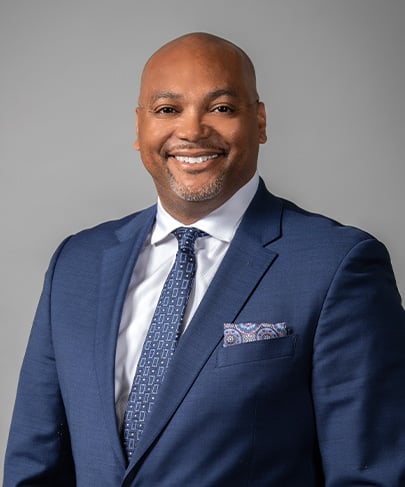Five Upcoming Changes to Ohio’s Medical Marijuana Laws & Recreational Update
DOWNLOAD PDF- Pierre-Louis, Lloyd
- Industry Alerts
Click “Subscribe Now” to get attorney insights on the latest developments in a range of services and industries.
Governor Mike DeWine signed into law Am.Sub.H.B.33, Ohio’s biennial budget bill, on July 3, 2023, which includes changes to Ohio’s medical marijuana laws. Additionally, the prospects of legalized adult recreational use of marijuana continue to advance toward a statewide vote.
First, the bill consolidates oversight of the Medical Marijuana Control Program (“MMCP”) within the Division of Marijuana Control (“DMC”), which the bill creates within the Department of Commerce (“DOC”). To oversee the DMC, the bill establishes a Superintendent of Marijuana Control who will report to the Director of the DOC. Currently, COM and the State Board of Pharmacy (“BOP”) split primary oversight of the MMCP, with COM being responsible for licensing and oversight of cultivators, processors, and testing laboratories and BOP being responsible for licensing and oversight of medical marijuana patients, caregivers, and dispensaries. Accordingly, the bill transfers all assets, liabilities, and obligations of COM and BOP related to medical marijuana to DMC, and personnel from both agencies engaged in MMCP regulatory duties will similarly transfer to the DMC. The bill requires the transfers to be completed no later than December 31, 2023. (Note that the State Medical Board’s oversight of physicians recommending medical marijuana and adding new qualifying medical conditions will remain intact.)
Second, until the formal transfer of authority occurs, BOP and COM retain their respective marijuana licensing and oversight responsibilities. Persons seeking registration as a medical marijuana patient or caregiver must apply to BOP until the 180th day following the effective date of the bill’s changes (i.e., December 30, 2023). After that date, such applications must be submitted to DMC. According to the state’s Legislative Service Commission (“LSC”), the BOP will continue receiving applications for patient and caregiver registrations for at least three months after the MMCP is fully transferred to DMC. Per LSC, BOP would send those applications to DMC for processing. The bill specifies that medical marijuana licenses and registrations issued by BOP and COM remain in effect for the remainder of their term. Suppose a license or registration expires before the program transfer is complete. In that case, the original issuer (BOP or COM) may renew it under the law as it existed before the bill’s effective date (October 1, 2023).
Third, forms of medical marijuana previously approved by BOP remain approved unless DMC later revokes the approval.
Fourth, DMC is required to adopt rules, standards, and procedures for the MMCP. The topics of those rules closely mirror those mandated for COM and BOP under current law. COM and BOP rules continue in effect unless they are repealed or amended by DMC. However, the bill requires DMC to review and propose revisions to the BOP rules concerning medical marijuana retail dispensaries no later than March 1, 2024.
Fifth, the bill included uncodified language to extend a provisional dispensary license (PDL) awarded in 2022 during RFA2 until December 31, 2023 if the PDL awardee has not yet obtained a certificate of operation notwithstanding BOP Rule 3796:6-2-04(L). That rule required PDL awardees to obtain a certificate of operation within 270 days of the PDL award.
Finally, the Coalition to Regulate Marijuana Like Alcohol – the group behind an effort to legalize the recreational use of marijuana – submitted over 222,000 signatures to the Ohio Secretary of State in its bid to place an initiated statute on the ballot in November. To qualify, 124,046 of those signatures must be validated by election officials as registered voters from at least 44 counties by July 20, 2023.
Marijuana, whether for medical or recreational use, remains a Schedule I controlled substance under the U.S. Controlled Substances Act.
Related Practices
Contacts
Recent Insights
- Industry Alerts Rumored Changes to the H Visa Category
- Industry Alerts Healthcare Legal News: Volume 7, Number 2
- Industry Alerts FCC Expands National Security Measures for Telecom Industry
- March 03, 2026 Podcasts Scot Crow and Benjamin Sobczak were Recently Featured in the Cannabis Radio Blunt Business Podcast, Part 1.
- March 02, 2026 Industry Alerts Cannabis Patents: How Evolving Marijuana Laws Affect Plant, Seed, and Processing Innovation
- January 15, 2026 Industry Alerts What Does the Revised Definition of Hemp Mean for Trademarks?
- December 19, 2025 Industry Alerts Marijuana Rescheduling Pending Despite New Executive Order
- December 03, 2025 Industry Alerts TABC Tightens Rules on Hemp-Derived Cannabinoid Products, COAs, and Retail Sales
- November 17, 2025 Industry Alerts Congress Moves to Redefine Hemp: One Year to Reshape a Multi-Billion Dollar Industry

